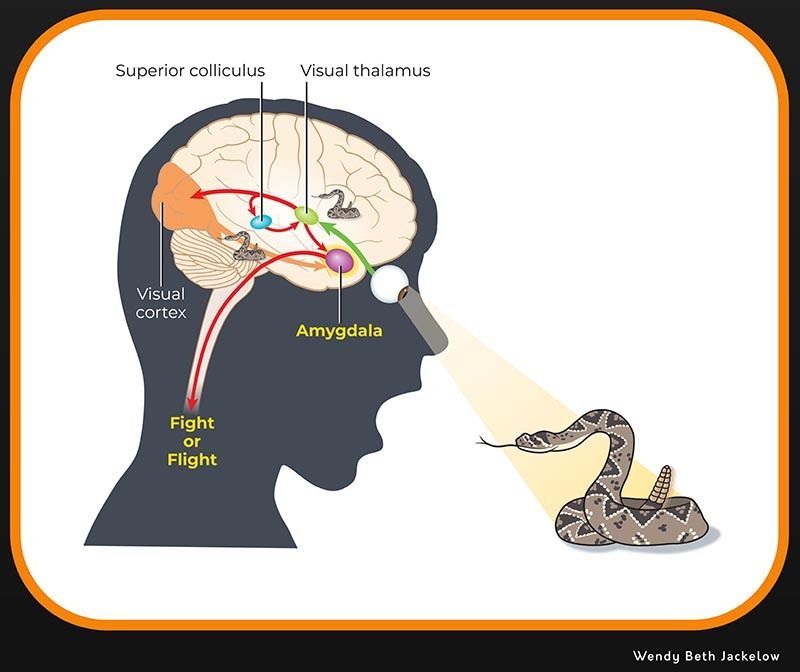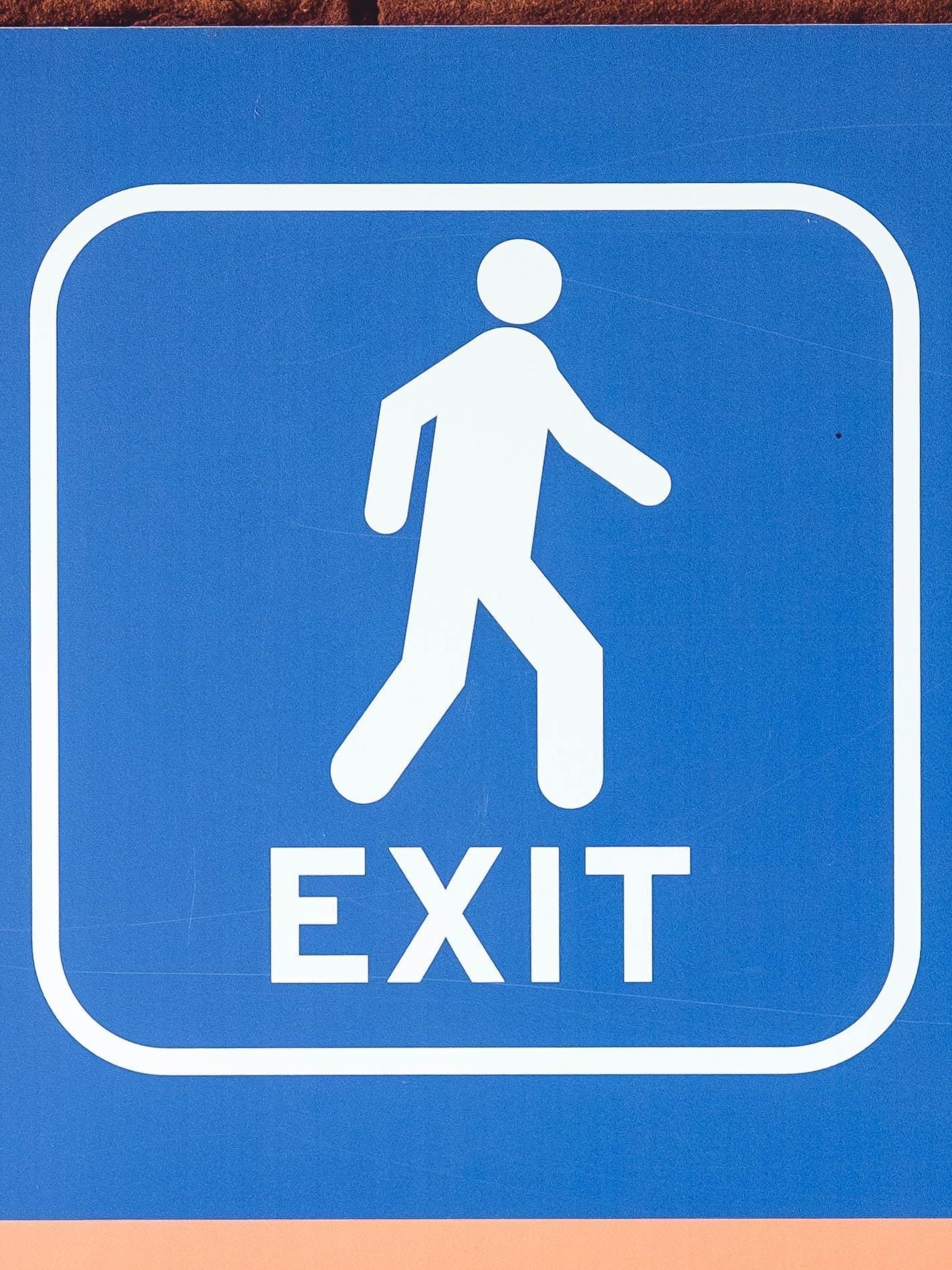What's a "trigger"?
The word "trigger" is thrown around casually these days. So here's the medical definition in the context of PTSD:
Any sensory experience that causes an immediate, fight/flight/freeze (FFF) response.
Remember that a trigger can come in the form of any of our five senses: sight, hearing, smell, touch, or taste. Sometimes even a relational situation or the setup of a room can be a trigger. Regardless, a trigger is defined by your body's physical reaction, which is sudden and often seems overwhelming.
The immediate fight/flight/freeze (FFF) response is your biological "DANGER!" signal. Once FFF begins in your body, it sets off a biological chain reaction over which you have very little control.
Here are some physical symptoms of a fight/flight/freeze episode:
In the BRAIN:
- the prefrontal cortex (rational thought) shuts down
- the amygdala (fear & survival) activates & takes over all neurological function
which causes changes in the REST OF THE BODY, such as:
- rush of adrenaline released into body
- rush of cortisol released into body
- elevated heartbeat
- shorter, shallower breathing
- clenching of muscles
- sudden throwing of arms out from the body, or clenching the fists
- a sense of paralysis (to me, it sometimes feels like the air has become concrete, and every movement takes a lot of effort)
- sudden screaming or exclaiming
- eyesight narrowing while eyelids seem to get bigger
- surge of blood pressure and blood sugar
And here are some emotional symptoms of a fight/flight/freeze response:
- surge of rage
- hyper-vigilance
- desire to fight or even do harm
- urge to run as far away as possible (sometimes this can look like obsessing over the exits from a room, or imagining worst-case-scenarios like "what if a shooter comes into the room right now?")
- desire to hide or become very tiny or invisible
- a crushing sense of urgency
Fight/flight/freeze (FFF) is a normal part of being human. It's programed into our cells, and helps us to stay out of danger most of the time. FFF can be healthy, when, say, crossing a four-lane highway on foot. Or deciding whether to go into that house for the party. Sometimes FFF doesn't help. For example: when your little brother pops a balloon right by your ear. In that case, after you realize what happened, your body releases a hormone to inform all of your cells that you are now safe. You may still want to fight your brother, but your hormones are beginning to calm down. FFF has statistically kept us safe more often than it's been a false alarm, so our bodies sustain this reaction.
If we have PTSD, our FFF mechanisms get broken. The "off" switch, the hormone which signals our nervous systems that we're safe now, can be depleted, basically leaving you in a constant state of FFF arousal. Always thinking you're in danger. Never feeling safe, even when the physical evidence around you seems to the contrary.
One of my triggers is sudden, loud noises, for example. Even my own dog barking, if it takes me by surprise, sends me into FFF. When I realize that it was my own dog, and she was only barking because a package was delivered to our front porch, my body DOES NOT get the memo that we're safe. That button in me broke decades ago. So my heart rate continues to be elevated, my breathing is shallow, and my whole body is ready to run, fight, or throw up sometimes hours after she barked & I realized I was safe.
THAT, my friend, is what we mean by "trigger" in the context of PTSD. A visceral, hormonal, sudden response that feels like terror. Survival at all costs and the absence of rational thought.
Anything Can Be a "Trigger"
In this context, any detail, regardless of whether you understand why, can trigger you. The sight of a tennis ball. The sound of footsteps on stairs. A person's tone of voice. Get the idea?
So please don't make fun of anyone's trigger. There is a specific neuropathway that took her from seeing that tennis ball to FFF. She may not yet know the pathway is there. Unfortunately, the only way for us to identify our own triggers is to experience them.
As you learn to identify your triggers and process them with your therapist, you'll be able to anticipate some of them and either avoid the trigger altogether or have a plan in place. Triggers almost always surprise us, even when we know rationally that we shouldn't be scared of the color blue (for example). It's this sudden and extreme physical and emotional reaction that makes triggers so damaging and exhausting.










